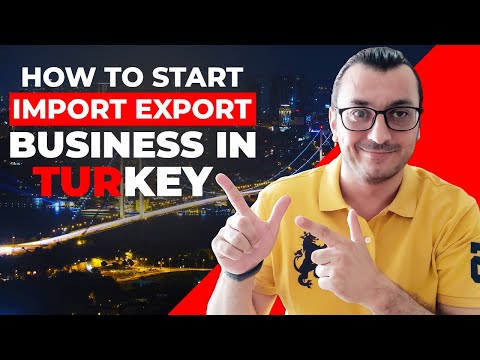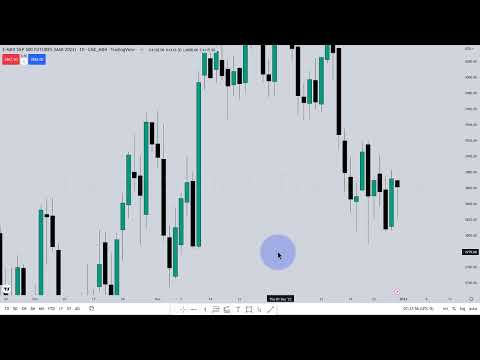HOW TO START AN IMPORT EXPORT BUSINESS IN TURKEY

Hi everyone. Thanks for coming here. Are you interested to expand and start an import-export business with companies in Turkey? Perhaps you are a local Turkish entrepreneur, looking to expand and export to Europe or any other part of the world. Turkey provides business opportunities for both – to the local entrepreneurs who are planning to start their own import-export business in Turkey. Also for entrepreneurs located in other countries, looking to export to Turkey or import from there. Turkey is a unique country, with ninety-seven percent of Asia and three percent of the continent of Europe, but development and prosperity follow European standards and speed.
Turkey is a “fertile land” for those who want to start and grow their international trade business. Becoming successful requires hard work, dedication, and a lot of pre-work. All starts from research and analyzing to find suitable business opportunities just for you. So, in this video, I will explain how to start an import-export business in Turkey. And how to succeed.
What are the main export and import products in Turkey? How to start an export business in Turkey and also how to start an import business from Turkey. I will show these subjects step-by-step and we are also looking at what are procedures. By the end of the video, you will have the answers to all these subjects and other related questions. And it will give you many import-export business ideas. Hello everyone, I would like to welcome you again.
My name is Murat. I am the Head of Global and Co-founder at Solar Solenturk and Futuresia Global Trade companies. Earlier, I posted a video explaining how to start an import-export business in Indonesia.
And I got good feedback on this video. You can find the link to that video somewhere here. Today, in the second country video, we will talk about my lovely country, Turkey.
And together we will learn how to start an import-export business in Turkey. If you want me to make similar videos in other countries, please write which country you want in the comments. Let’s dive in. My video is in eight parts. To begin with, I will share some basic information about Turkey. Following that, I will talk about the advantages and disadvantages of doing business in or with Turkey.
Then I will show you the main export products in Turkey and Turkey’s main import products. After that, I will share the main steps on how to start an export business in Turkey and how to start an import business from Turkey. And finally, my video will end with my conclusion. So, before starting please do not forget to subscribe to my channel and hit the bell for more great quality content on how to start your dream international trade business and change your life.
Okay. Let’s start with an overview of the Turkey economy and its specifics first. Turkey is a large country and is active in foreign trade. Turkey’s economy ranks sixth in Europe and the top twenty largest economies in the world by Purchasing Power Parities. Turkey’s population is comparable to Germany. The Turkish government plans to make the country to be on the list of the ten largest economies in the world. In the ten fastest-growing cities, Turkey’s city Izmir has reached the third rank in the world, ahead even the Hangzhou of China.
Strong business culture and supportive measures have been making it easy to turn growing cities into early production centers to export goods to Europe. Turkey is also called one of the newly industrialized countries. Turkey has various natural resources including metals and has a competitive business environment for industrial production and manufacturing. It has a low-cost but relatively skilled workforce. All that is required to become a production powerhouse.
This is the reason many international companies have set up their production units in Turkey. It is connected with Europe, it has land borders with Bulgaria and Greece which belongs to the European Union, and it has a trade agreement with Europe. Turkey local manufactures have a great business opportunity to export their locally produced goods to European Union countries and elsewhere. Of course, first, it must be made clear, what kinds of products have the greatest export potential.
The country has developed the mining industry, exploiting nine hundred thousand tons of chromium per year (ranked first in the world). There are also coal, copper, and boron. Turkey can be also considered an agricultural country, about twenty percent of the population is occupied in agriculture. That’s why one of the main export products is vegetables, fruits, and textiles. But on the other hand, because it is also an industrial country, it exports also iron, steel, transport equipment, machinery, and HVAC equipment.
The main import items are machines, chemicals, semi-finished goods, fuels, and transport equipment. Some main trade partners of Turkey are Germany, England, Italy, Russia, France, Spain, China, and the USA. So that completes the basic information about Turkey. Let’s move on to the advantages and disadvantages of doing business in or with Turkey. Either you are planning to start exporting out from Turkey or you are from abroad and looking to do business with the local companies, it is important to understand the main advantages and disadvantages which can directly or indirectly affect your business. Okay, let’s look at the main advantages of doing business in or with Turkey.
One - Land borders with European Union countries. Two - Trade agreements with EU. Three - The business environment is attractive for production and manufacturing and agricultural production. Four - Products manufactured in Turkey have price advantages over EU-made products, which means easier entry to the European market. Five - Turkey has local natural resources, various raw materials can get from the local market, no need to import.
Six - Additionally, Turkey has land borders with other low costs and resource-rich countries which provide raw materials and minerals like Georgia, Azerbaijan, and so on. All this helps make Turkey even more competitive. Seven - Large and developing cities like Izmir have increasing purchasing power, which means locals can afford European-made brand products. Means business opportunities for local importers and foreign exporters from Europe. And lastly, number eight - English and Russian languages are widely spoken which are important business languages. So let’s move to look at the main disadvantages of doing business in or with Turkey.
First - Lira has decreasing purchasing power against USD and EURO and the rate is not stable. Second - Turkey has still a large trade deficit, which results in high inflation. Third - The country has a border with an unstable country like Syria in the southeast. And last, Fourth - Local culture (mix of Asian and western) and traditions can be hard to understand. Before doing business, deep understanding is required.
A local partner or consultant is highly recommended! Now, as you are familiar generally with the Turkish market and the specifics. Let’s move on to look at what are the top export-import products in Turkey. Okay, let’s start with the main export products of Turkey. Minerals In two thousand twenty, export volume in the Turkish mining industry reached four point three billion US dollars. In August, exports increased by seven percent, China topped the importers of mineral products from Turkey, worth the one point sixty-six billion US dollars of products: natural stone, copper ore, chromite ore, and precious metals. Fresh vegetables Export turnover of fresh vegetables and fruits from Turkey reached a total value of one point thirty-one billion US Dollars.
Topping the most exported fruits is cherries with a total value of one hundred fifty million US Dollars, followed by strawberries, grapes, and apricots. Export products to Russia, in which fresh fruits and vegetables recorded the highest export with nearly five hundred million US Dollars. Fresh tomatoes are also the most exported of fresh vegetables with a total value of four hundred nineteen point thirty-two million US Dollars. Textiles Turkey has produced clothes for many famous Western European and American fashion brands such as Versace to Benetton, Wal-Mart, and Carrefour in the past two decades. Among the items, suits, jackets, skirts for women, and suits, jackets, pants for men are the most exported product groups in the woven apparel group.
Export markets of Turkey’s textiles are mainly European countries (Russia, Italy, Germany, Romania, Poland), the Middle East, and the USA. The major textile producing regions are Istanbul, Izmir, Denizli, Bursa, Kahramanmaras, and Gaziantep. Vehicles Turkey’s automobile industry has sixteen manufacturing enterprises, producing individual vehicles, buses, vans, pickup trucks, light and medium buses, tractors. With a total design capacity of about one point six million units per year, actual output in two thousand nineteen reached one point thirty-eight million units of all kinds. Now, because of the global energy transition, companies are developing local electrical vehicles. Currently, Turkey is Europe’s largest producer of chucks and buses.
Turkey is also an exporter of CBU and large CKD vehicles in the world. In two thousand nineteen, Turkey’s exports of automobiles and components reached twenty-eight point four billion USD, accounting for fourteen percent of total merchandise export turnover. The main export markets of Turkey are France, England, Italy, Germany, and Belgium. Chemicals Turkey has the largest soda factory in the Middle East, with an export capacity of seven hundred fifty thousand tons per year. As the top five countries supplying chrome ore to the world market, Turkey produces and exports some chrome chemicals and solvents such as sodium bichromate, base chrome sulfate, chromic acid, and chrome oxide.
Turkey exported chemicals to one hundred eighty countries around the world. The importing countries are Egypt, Iraq, Germany, Russia, Malta, UAE, Iran, United States, United Kingdom, and Greece. Machines Turkey’s total machinery exports reached six-point eleven billion US dollars. The machinery exports increased the most, including engines, components, industrial air conditioners, and coolers. This sector presents great opportunities and this sector is supported by the government. Machinery for construction and mining, food industry, pumps, and compressors are the most exported items to Germany.
Apart from Germany, Turkey also exported machinery to Iranian markets with a total turnover of 414 million USD, the UK with 322 million USD, Russia with 301 million USD, Iraq with 265 million USD, France 220 million USD, Italy 236 million USD, Azerbaijan 190 million USD, and Saudi Arabia 161 million USD. So, let’s look at the main import products of Turkey. Textiles Turkey also imports textiles and apparel, mainly clothing, cotton, and synthetic fibers of all kinds. Countries exporting clothes to Turkey include Italy, Spain, China, Great Britain, Germany, France, Bulgaria, India, Greece, and the Netherlands. Countries exporting yarn and textiles to Turkey include the US, Italy, Germany, China, India, Vietnam, South Korea, Pakistan, Indonesia, and Greece.
Raw materials for plastic production Turkey imports about ten billion USD of plastic materials annually. Turkey imports plastic products from more than one hundred countries in the world. Sixty-three percent of plastic is imported from Saudi Arabia, Germany, Belgium, the Netherlands, South Korea, Spain, Italy, France, and the USA. Home Appliances And Wooden Products Turkey’s housewares industry has two product lines: long-term appliances (also called “white” appliances) and other small items.
To support its re-export, Turkey has to import a large number of household goods every year. In two thousand nineteen, the import volume of these items reached nearly two point one billion US Dollars. The countries exporting home appliances and wooden products to Turkey are China, Germany, Thailand, and Poland. Cashew nuts Turkey imports raw cashews for processing and serving domestic demand from some African countries such as Mozambique, a country specializing in exporting raw cashew nuts. Mozambique has surpassed India in terms of volume imported into Turkey, with approximately two hundred tons.
This category presents export opportunities for Southeast Asian countries, especially for cashew exporters in Vietnam. Natural rubber products Turkey imports about zero point five billion US Dollars of natural rubber. From Thailand eighty-nine million USD, from Indonesia sixty million USD, from Malaysia twenty-eight million USD, and Taiwan sixteen million USD.
Means great export opportunities for exporters from Indonesia or other Southeast Asian countries. Shoes Turkey imports about six hundred million USD of footwear every year. China is the largest supplier of about two hundred fifty-eight million USD, followed by Italy with about fifty-three million USD, and Vietnam with about forty to fifty million USD.
In Turkey itself, there are many well-known footwear manufacturers. Each year, Turkey exports about two hundred fifty million US Dollars of footwear. Mainly in Russia, Central Asia, and Middle East markets. After you know the main export and import products in Turkey, you can do deeper research and analyze.
Need to make sure what would be the perfect product you should start dealing with. This depends on where you are based now, in what industries you have been active, what are your connections, your expertise, and your financial possibilities. Most importantly, you as an entrepreneur should make sure and focus on this with what you can provide the most added value and have the biggest advantages. Maybe you have connections in the European fashion industry and perhaps you can bring the new brand to the Turkey market for its growing middle class. Or maybe you have connections in the air conditioner retailers industries in north Europe, why not consider the possibility to start exporting Turkish-made air conditioners to Scandinavia.
Or maybe you have connections in a berry farm in the Turkey countryside and you happen to know fruit importers from Russia, why not start and act as a commission agent and collect commission from each deal. No matter in which industry and business model you finally end up in, you shall know the process of exporting goods. So let’s move on to look at how to start an export business in Turkey step-by-step. Step One: Research & Select the export markets The choice of the market must be made for each product of the company.
It is necessary to study the product-market pairs. Besides finding information on the Internet, you need to do internal research. That means you need to talk to the experts and insiders in the markets you are going to export. They can provide you with useful insider information to help you make the right choice.
Try to interview importers, industry experts, and other related experts. You can gather information by talking, exchanging at trade shows, by phone, or visiting Turkey and meeting possible partners. Step Two: Create an export business plan Developing an export plan is a prerequisite for the execution of the export strategy. It helps businesses seize opportunities and minimize risks.
Accurate forecasting of market demand from which to build up procurement and storage plans will ensure a successful export. In the business plan, you will have to make clear points: How will you organize your export activities? These activities include: setting up offices in export markets, one or more export agents in export markets, or a distribution channel? Do you join an export corporation or a strategic alliance? What products do you choose to export? Who will be your clients, how the supply chain works, which sale and marketing channels to use? Step Three: Select the products to export The selection of products that suit the tastes and needs of target country consumers is crucial. To make the best product selection, you can research the consumption and trends in the market. Essential products people need or products that importers need to find, actively monitor information on newspapers, join import-export groups in Linkedin or information exchange forums, or contact the Turkish government representative offices to support your businesses to get information about expanding to foreign markets. Step Four: Export marketing You have products but have no customers yet.
So this is the time to conduct marketing to promote your brand or products to buyers. There are many forms of marketing to choose an appropriate marketing channel to reach customers. Finding international customers for your products start from knowing who are your customers and what do they want and why.
Step Five: Apply for the export licenses According to Turkish regulations, you must provide consular legalization for the shipment documents before transferring them to the importers. For goods that require export licenses, applying for a permit is compulsory in the export process business. In case your company does not yet have an export license, you need to apply for a one-time application export license to be able to use it many times. It depends on each country’s policy to go to the local authority to get information.
Step Six: Sign the foreign trade contracts The first step to getting started with the business transaction is to find the customers who are ready and willing to purchase from you. Then negotiate and sign a sales contract with a foreign partner. It is an agreement between the two parties and should include the necessary content, such as: Commodity information, Price, and payment terms, Delivery, Packaging, Guarantee, and Complaints.
The detailed contract is negotiated and agreed upon by both sides to suit the actual needs. Step Seven: Monitor the orders and collect the deposits A growing business means getting more orders. If orders are not filtered carefully, packaging and delivery will be difficult.
Do not forget to collect deposits from the buyers. You can use order management software or can create a file to store buyers’ order data. Step Eight: Prepare the export shipment Export goods by sea After the consumer agrees on the proforma invoice, you need to ensure the quantity and quality as in the contract. The next step in exporting goods after the booking has been done is to get the container for packaging and do not forget the inspection before sealing. Sea Ports In Turkey: Mersin Port, Istanbul Port, and Izmir Port.
Noted when Exporting goods by air Carrier is usually a forwarder or an aviation agent. This forwarder must be appointed by the airline and allowed to operate the cargo for the carrier. You will need to hire a shipping service company to do the necessary steps in the door-to-door delivery process. Step Nine: Buy the shipment insurance You can contact the insurance company to buy insurance for your shipment. The limit of insurance will completely depend on the value of your goods. For ordinary goods, the insurance purchase price will be two percent of the total value of goods.
Shipment exported under FOB or CFR terms no need to buy insurance. Step Ten: Custom procedures At the airport of the importing country The agent carrier will contact and coordinate with the importer to do procedures related to airlines, airports, customs, tax bureau, to do the custom procedures. After completing the procedure, the forwarder arranges the means to deliver goods to the importer’s warehouse.
By-sea customs procedures: You will open customs declarations, register fees, pay fees, liquidate declarations, enter ship books and apply to customs declarations, putting it into the ship’s book, and apply to the customs declaration. Turkey has made commitments to the EU and ensured the trade liberalization regime according to European Union standards. The policy will be consistent with the EU system of regulations on quotas, product quality, healthy competition.
So that completes how to start an export business in Turkey. Let’s move on to look at how to start an import business in Turkey step-by-step. Step One: Determine the importable goods from Turkey Sourcing is the first factor a business person must consider. Depending on your business strategy, you will need to choose suitable goods from Turkey to import. You can find websites specializing in goods trading, groups, social networking sites with many wholesale businesses, or surveying famous wholesale markets in Turkey where they sell what kind of goods you want to import.
Step Two: Find the export agents in Turkey Make sure you are working with a professional export agent, it will save you time and money. Local agent or expert usually knows the local prices and know-how and where to get the good with the lowest price, meanwhile ensuring the quality. Step Three: Negotiate And Sign the contracts Time to negotiate and agree on the terms, all should end up in contracts; What are the quantities, prices, packing, payment terms, delivery terms, documentation, warranty.
Support shipping or marketing after delivery? Consider all these notes before signing the contracts. Step Four: Check the shipping process In this step, you can check the shipping cost, shipping time. For customs clearance: as per Turkish customs regulations, the transport companies and forwarders do not prefer to complete export-import clearance. Exporter or Importer companies always make their own customs clearance by themselves using their authorized customs brokers in Turkey. Well, that concludes my video for today. We have talked about how to start an import-export business in Turkey.
Starting and having an import-export business is a dream for millions of people. If you know the processes, and you know how to discover the business opportunities and how to execute these, you will create a sustainable and highly profitable, and growing business that will support your lifestyle. To do this, you need to learn and practice a lot. You need knowledge from the people who have done this already, but meanwhile, understand where you are standing now. I suggest starting from research, creating local connections, visiting local interesting trade fairs before making plans of exporting to Turkey or importing from Turkey. I try to help people to start their dream import-export business with my Youtube channel.
And I am planning to create online courses about various topics of international trade business shortly. So, I want to hear your thoughts about that. Do you want to join my online courses about import-export business if I create? Let’s write your thoughts in the comment below. Your thoughts are crucial for me to decide to make or not.
Congratulations! You have officially learned How to start an import-export business in Turkey. Now start booming and make the world your business! Now I would like to hear your thoughts. I want to make sure you get this and prove it to me.
I want you to do a couple of things for me. One: hook me with a thumbs up. And number two, comment below. Also, if you would like to learn more about international trade you can watch videos here on my YouTube channel. Please do not forget to subscribe to my channel and hit the bell for more great quality content on how to start or grow your import-export business.
So go out there and make some trade, be confident, and realize that you can export and import at the same time. I have some good stuff over here you can watch and learn more about international trade and business. Keep going. Stay safe and healthy. Bye.
2021-09-24 01:17


